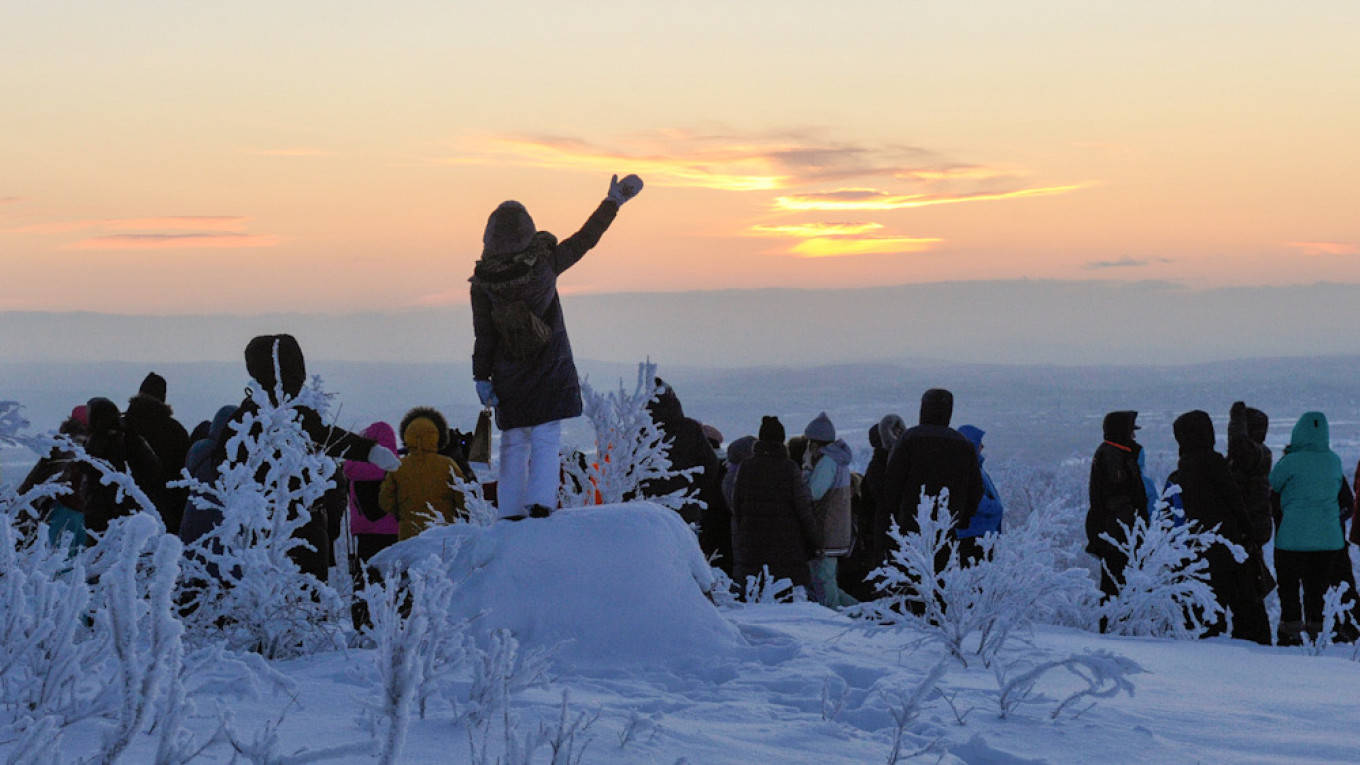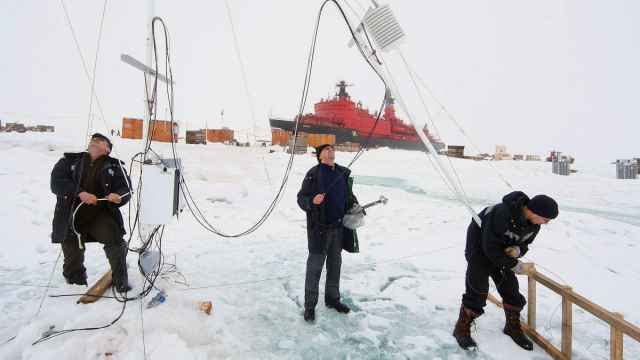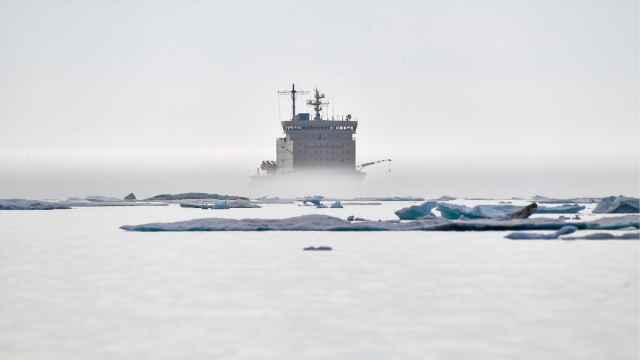The first sunrise of the year dawned upon residents of Murmansk in Russia's Arctic as the 40-day-long polar night finally came to an end — if only for a brief 45 minutes.
On Jan. 11, residents of Murmansk, the world's largest city above the Arctic Circle, rushed outside to greet the sunrise in what has become an annual tradition.
An early sunset at 1:50 p.m. over an icy dessert.
The sunrise looks even more stunning against the frozen northern landscape.
"Only a person living in the far north can appreciate and admire the first rays of the sun. The polar night ended in Murmansk today!"
The Murmansk region is famous for its natural scenery: tundra, mountains and snowy taiga.
The rose-colored sky over the Murmansk region's steppe greets the end of the polar night.
Greeting the end of the polar night with traditional wooden sculptures at a farmstead not far from the city.
After 40 pitch-dark days, Murmansk residents get to start the first work week of the year under the sun.
A Message from The Moscow Times:
Dear readers,
We are facing unprecedented challenges. Russia's Prosecutor General's Office has designated The Moscow Times as an "undesirable" organization, criminalizing our work and putting our staff at risk of prosecution. This follows our earlier unjust labeling as a "foreign agent."
These actions are direct attempts to silence independent journalism in Russia. The authorities claim our work "discredits the decisions of the Russian leadership." We see things differently: we strive to provide accurate, unbiased reporting on Russia.
We, the journalists of The Moscow Times, refuse to be silenced. But to continue our work, we need your help.
Your support, no matter how small, makes a world of difference. If you can, please support us monthly starting from just $2. It's quick to set up, and every contribution makes a significant impact.
By supporting The Moscow Times, you're defending open, independent journalism in the face of repression. Thank you for standing with us.
Remind me later.






